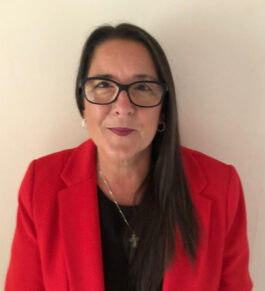How our teams provide consistent care, more efficiently, as equal partners
Angela Pownall, Team Up Derbyshire Operations Manager for the High Peak area explains how health and care professionals work together to support people in their communities

I recently spoke at the Derbyshire Dialogue event about the difference Team Up makes.
I asked the team I work with: “What would you like to say if you were there?”
I feel it’s important we listen to our staff and our teams, but also to our citizens and what people are saying in our community here in the High Peak.
They told me:
- one of the best things is that we’re all based together and they said that they found it refreshing
- they feel they are autonomous practitioners
- they feel clinically supported but they have collective responsibility. This enables them to feel safe in their decisions.
- they have assurance and accountability, but this is shared, and the collaboration has easily moved from collaboration to integration, which is enabled them to feel empowered as practitioners.
- they feel that they are partners, with equal importance across the system, and they’re allowed with ease to network, with no restrictions, with their colleagues across organisations.
- they’ve had improved access to systems, which has allowed to sharing of records (with patient consent, obviously) which has also enabled them to provide a better service.
Our people in Team Up are nurses, doctors, physiotherapists, paramedics, social workers, social prescribers, mental health practitioners and support workers.
They are employed by different NHS organisations, by councils and by charities. In the past it has been hard for us all to work together as one team when we have different IT systems, different ways of working, different priorities.
However, there’s been a seamless reform and this has occurred through a change in the culture.
That was probably was the most difficult thing for us. But we have changed our culture so now it’s about person centred care and support.
In terms of people’s competencies, their skills and their knowledge have improved because they’re sharing their knowledge, but they’re gaining knowledge from other people in different organisations too.
I graduated 25 years ago as a dual qualified nurse and social worker and we were told, as a group by the Dean of the University of Manchester that we were the hybrid workers of the future.
I can honestly say within my practice over those years as a registered nurse and social worker, it is only now that I finally feel that we’re seeing integration working. I finally feel that I’m using all the skills that I gained through my training.
Most importantly, I think for members of our community, the feedback that we’re getting from our patients and the people that we’re seeing in both our urgent community response service and the home visiting services is that we’ve got that “no wrong door” approach that means anyone will take on caring for people, regardless of whether the particular issue is “their” job.
We have a consistency of care.
We can address the physical, psychological and social care needs, so we’re addressing people’s wellbeing, not just their healthcare.
We’ve improved efficiency and that’s through cost savings because we’re not duplicating things the way we used to do.
We are reducing the time it takes to do things.
We’ve covered hundreds and hundreds of GP visits now on behalf of our local practices. That has allowed our local GPs to stay in practice and open those appointments for those people that can get to the surgery.
There have been many challenges. We’re 12-18 months into our services in the High Peak but we have overcome our challenges.
We now receive calls from emergency departments. They phone us and say: “We’ve got this person, and this is the scenario.”
We can then assure them that they can send that person home and so they have not been admitted to hospital.
We can access social care, GPs, falls recovery, we provide support for care homes, Hospice at home, we link very well with mental health services.
We’ve got a really good collaboration as well from a mental health point of view.
We have access to therapists and nurses and within the team we have advanced practitioners, a GP in every day, enhanced clinical practitioners, paramedics and social workers, so we’ve got all-rounded service.
So I think we provide care in the right place with the right person and the right response.
That ensures we can provide the right care and, most important of all, the right outcomes the person we are supporting.
- Read in our newsletter how Team Up has helped thousands of frail older people to avoid hospital.
